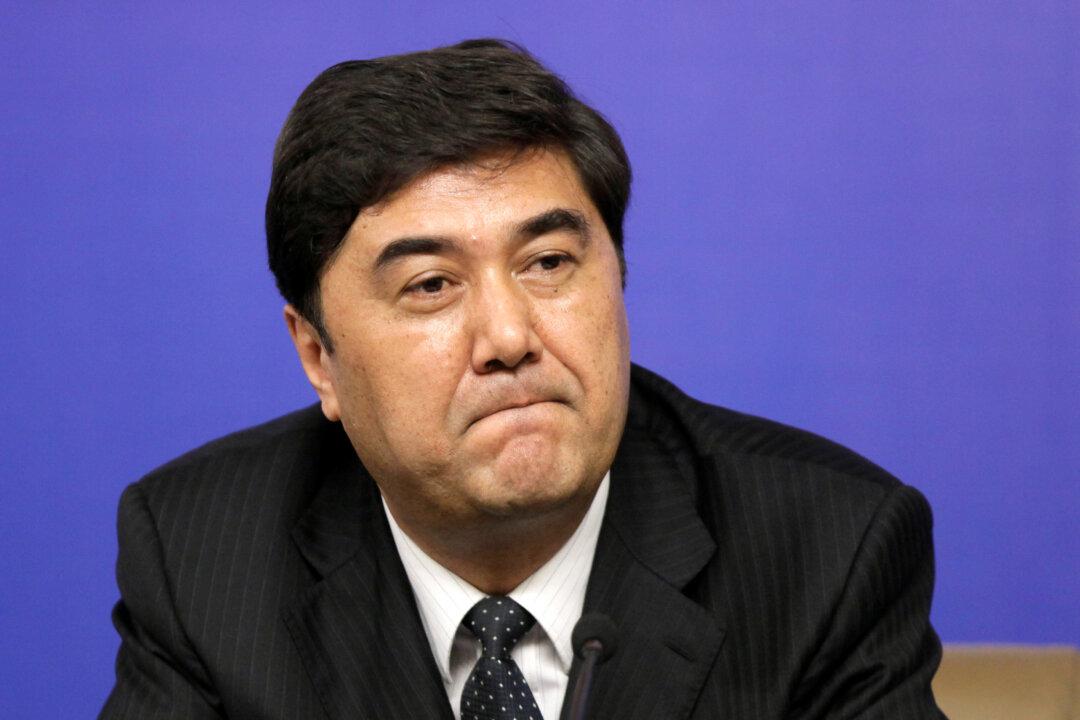SHANGHAI— China’s anti-corruption watchdog said on March 16 it would prosecute Nur Bekri, one of the highest-ranking ethnic Uyghur officials in the country, over allegations of graft during to his time as governor of Xinjiang.
The Central Commission for Discipline Inspection (CCDI) said in a statement that Bekri obstructed an investigation launched in September and had failed to tell the truth.
Bekri was governor of Xinjiang between 2008-2014, holding the second-highest position of power in the western region behind the Communist party secretary.
Bekri, who until December was director of China’s National Energy Administration (NEA), could not be reached for comment.
The anti-corruption agency said its investigation had found that he took advantage of his position to obtain “a huge amount of wealth,” either directly or through relatives.
He also allegedly received bribes and demanded the provision of luxury sedans and chauffeur services for his family members.
Bekri “led an extravagant life, was morally corrupt, and used his power for sex,” the statement alleged.
The NEA said in a statement on Sunday the struggle against corruption in its administration remained complex and that it needed to learn the lessons from the Bekri case.
His prosecution comes as the Chinese regime ramps up surveillance and suppression of Muslim Uyghurs in Xinjiang.
As governor, Bekri supported policies that restricted religious practices of the Muslim Uyghurs, who make up a majority of the overall Uyghur population.
He was also a proponent of educating Xinjiang’s Turkic-speaking school children in Mandarin.
The news follows orders by Chen Quango, the Chinese Communist Party’s (CCP’s) Secretary in Xinjiang, to relocate all “orphans” in Xinjiang to state facilities by 2020.





